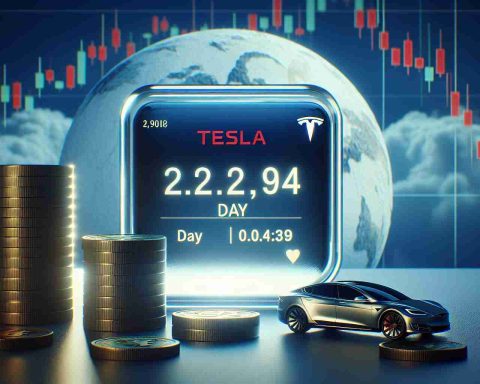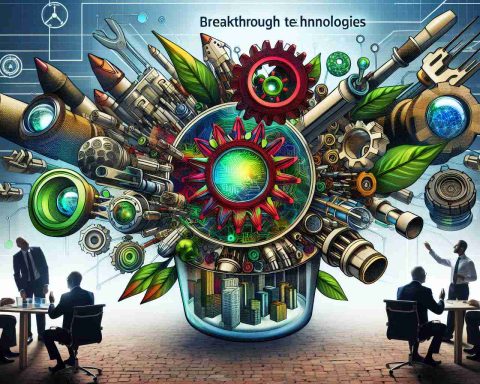Nissan Motor is gearing up to supercharge its electric vehicle (EV) strategy by partnering with South Korea’s SK On for battery supply. This collaboration aims to commence around 2028, representing a significant step in Nissan’s mission to revitalize its presence in the EV market, especially in the U.S.
In this agreement, SK On will provide 20 Gigawatt-Hour (GWh) of cutting-edge ternary lithium batteries, enough to power approximately 300,000 standard electric vehicles. With this supply, Nissan seeks to embrace new avenues in the rapidly evolving EV landscape. This initiative comes alongside other strategic changes within the company, including potential job reductions and discussions around a merger with Honda, slated for 2026.
South Korea’s battery manufacturing capacity is on the rise, with lithium-ion battery exports reaching USD 5.3 billion in 2023. Forecasts indicate an increase to USD 5.4 billion in 2024, highlighting the country’s critical role in the global battery ecosystem. The U.S. stands out as a major market for South Korean batteries, importing worth USD 1.7 billion in 2023, further emphasizing the robust trade relations in this sector.
Additionally, South Korea has made significant imports of lithium-ion accumulators, mainly from China, amounting to USD 9 billion in 2023. This intricate network of trade is vital as Nissan moves forward with its ambitious plans to enhance its electric vehicle offerings.
Implications of Nissan’s EV Strategy and Battery Supply Partnership
Nissan’s collaboration with SK On marks a pivotal moment not just for the company, but for the global EV landscape. By committing to a substantial battery supply, Nissan strengthens its foothold in the competitive U.S. market, which is increasingly becoming a focal point for electric vehicle innovation. This partnership reflects a broader trend towards vertical integration in the EV supply chain, where car manufacturers are aiming to secure their raw materials and components to mitigate disruptions and reliance on external suppliers.
The implications extend far beyond corporate strategy. As the demand for EVs accelerates, the global economy will experience shifts in job creation, particularly in sectors related to battery production and EV manufacturing. South Korea’s burgeoning battery market is a case in point, with exports projected to maintain a steady increase, reinforcing its status as a key player in the energy transition.
Moreover, this partnership has significant environmental ramifications. The surge in EV production, bolstered by improved battery technology, could lead to a substantial reduction in greenhouse gas emissions, which is essential as nations strive to meet climate commitments. However, the environmental impact of battery production, particularly concerning lithium extraction, remains a critical concern that must be addressed to ensure sustainable growth.
Looking forward, trends suggest that collaborations like this will be essential as automakers navigate the complexities of battery technology and supply chain stability. The long-term significance lies in the potential for more alliances and innovations that can reshape transportation and energy consumption patterns across the globe, ultimately supporting a transition to a cleaner, more sustainable future.
Nissan and SK On: A Game-Changing Partnership for the Future of Electric Vehicles
Nissan’s Strategic Shift in the EV Market
Nissan Motor is set to significantly strengthen its electric vehicle (EV) strategy through a pivotal collaboration with South Korea’s SK On, aimed to kick off around 2028. This strategic partnership is a key part of Nissan’s efforts to rejuvenate its position within the competitive EV market, particularly in the lucrative U.S. sector.
Under this agreement, SK On will supply Nissan with 20 Gigawatt-Hour (GWh) of advanced ternary lithium batteries—sufficient to power roughly 300,000 standard electric vehicles. This move is aligned with Nissan’s commitment to innovate and adapt as the global marketplace for electric vehicles rapidly evolves.
Market Trends Impacting Battery Supply
The EV battery landscape is witnessing dynamic growth, with South Korea emerging as a powerhouse in battery manufacturing. In 2023, lithium-ion battery exports from South Korea surged to USD 5.3 billion, and projections suggest a slight increase to USD 5.4 billion in 2024. This trend underscores the growing importance of South Korea in the global battery supply chain, particularly for companies like Nissan aiming to expand their EV offerings in response to consumer demand.
The U.S. market especially stands out as a primary destination for these batteries, with imports from South Korea valued at around USD 1.7 billion in 2023. This robust trade relationship reflects the increasing reliance of automakers on South Korean technology and battery components.
Challenges and Opportunities Ahead
As Nissan embarks on this partnership, several challenges may arise, including the need to manage transitions within the company. Potential job reductions and talks of a merger with Honda by 2026 indicate a period of significant change. Such adjustments are critical to ensuring that Nissan remains competitive and can effectively integrate technologies from its partners.
Insights on Sustainability and Innovations
The collaboration with SK On not only focuses on supply but also emphasizes technological innovation to enhance sustainability in production processes. As the global automotive industry pivots towards greener solutions, the ability to produce environmentally-friendly batteries will be essential. This partnership signals Nissan’s commitment to sustainable practices that are environmentally sound and economically viable while meeting regulatory standards.
Predictions for the Future
Looking ahead, it is anticipated that Nissan’s collaboration with SK On will influence broader industry trends. The growing emphasis on battery supply chain resilience and sustainability will likely shape strategic partnerships across the automotive sector.
In addition, as more automakers jockey for position in the EV market, the competition will intensify. Companies that can successfully integrate advanced battery technologies and sustainable practices will likely emerge as leaders. Nissan’s proactive steps, like its partnership with SK On, may set a benchmark for others in the industry.
For more information about the electric vehicle market and future trends, visit the main domain of automotive insights at AutoWeek.



















